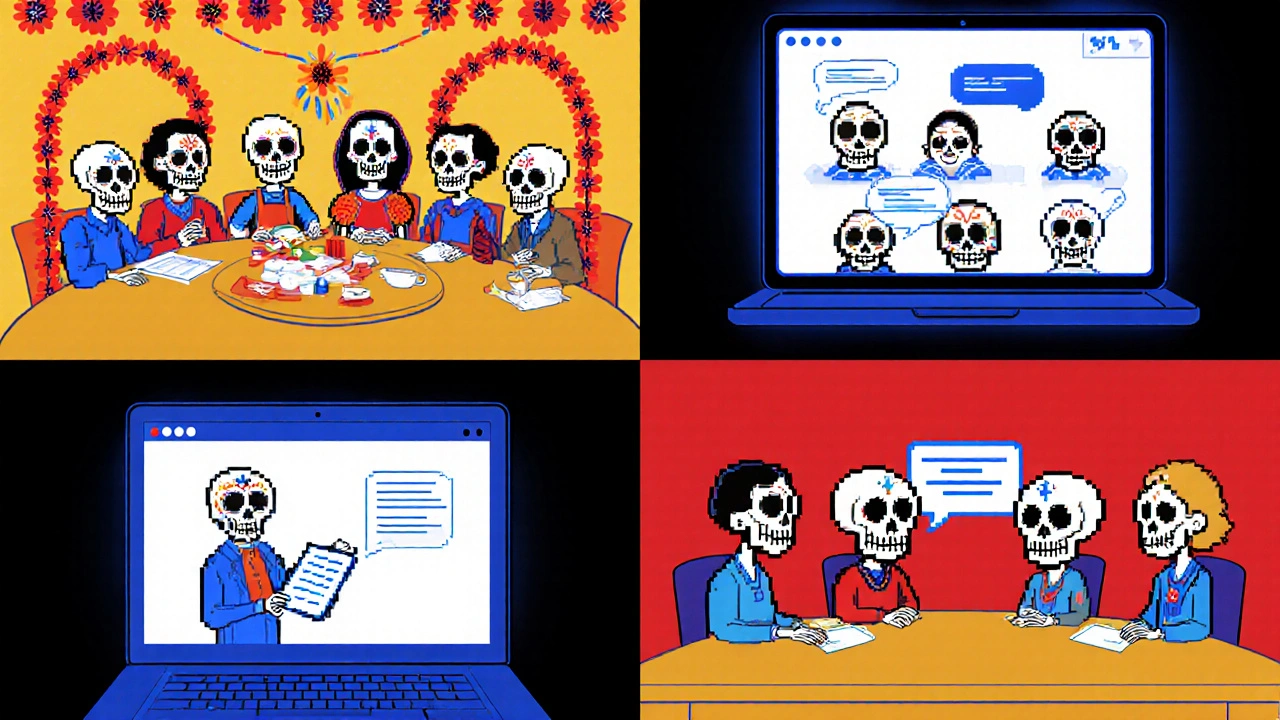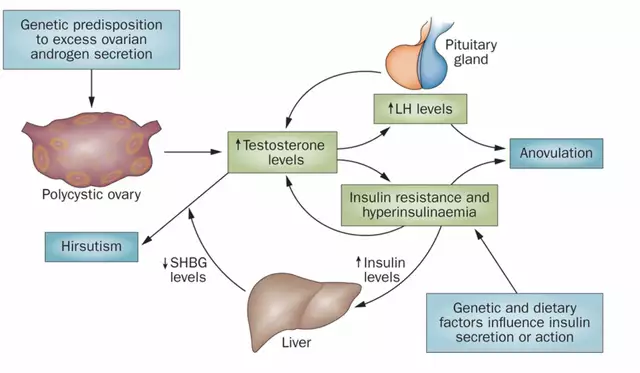Imagine you’ve just started a new prescription for your type 2 diabetes and you feel a mix of hope and uncertainty. You want a place where you can ask real‑world questions, share successes, and avoid the loneliness that often comes with chronic disease. That’s where the right diabetes support group can make a huge difference - especially when you’re taking Linagliptin.
What Is Linagliptin?
Linagliptin is a once‑daily oral DPP‑4 inhibitor used to improve blood‑sugar control in adults with type 2 diabetes. It belongs to the class of drugs that block the enzyme dipeptidyl peptidase‑4, which leads to higher levels of incretin hormones and, consequently, lower post‑meal glucose spikes.
Key attributes of Linagliptin:
- Typical dose: 5 mg once daily
- HbA1c reduction: 0.5‑0.8 % on average
- Kidney safety: No dose adjustment needed down to an eGFR of 15 mL/min/1.73 m²
- Low risk of hypoglycemia when used alone
Because it doesn’t require renal dose adjustments, Linagliptin is a popular choice for patients with declining kidney function - a common issue in long‑standing diabetes.
How Linagliptin Works and What to Expect
Linagliptin boosts the body’s own incretin response, mainly glucagon‑like peptide‑1 (GLP‑1) and glucose‑dependent insulinotropic polypeptide (GIP). This leads to three measurable effects:
- Increased insulin secretion after meals
- Reduced glucagon release during high glucose states
- Slowed gastric emptying, which blunts post‑prandial glucose spikes
Most clinical trials show a steady drop in HbA1c a lab measure of average blood‑sugar over the previous 2‑3 months of about 0.5-0.8 % after 12 weeks. The drug is generally well tolerated, with the most common side effects being mild upper‑respiratory infections or headache.
Why Diabetes Support Groups Matter
Diabetes support group a community of people living with diabetes who meet regularly to share experiences, education, and emotional encouragement offers more than just a chat room. Research from the American Diabetes Association (ADA) shows that participants in structured support programs are 30 % more likely to achieve target HbA1c levels and report higher treatment satisfaction.
Support groups provide three core benefits:
- Peer knowledge: Real‑world tips on diet, exercise, and medication timing.
- Emotional safety: A chance to vent frustration without judgment.
- Accountability: Regular check‑ins help you stick to your medication and lifestyle plan.
Types of Diabetes Support Groups
Not every group fits every personality. Below is a quick snapshot of the most common formats.
| Format | Typical Setting | Frequency | Key Advantages | Potential Drawbacks |
|---|---|---|---|---|
| In‑person | Community center, hospital, or church | Weekly or bi‑weekly | Face‑to‑face connection, hands‑on activities (e.g., cooking demos) | Travel required, limited to local area |
| Online forum | Dedicated website or social‑media group | Anytime, asynchronous | Convenient, anonymity optional, global reach | Risk of misinformation, less personal tone |
| Hybrid | Combines monthly in‑person meet‑ups with a private chat platform | Monthly live + daily online threads | Best of both worlds, retains community feel | Requires tech savviness to manage multiple channels |
| Physician‑led | Clinic conference room | Monthly | Evidence‑based education, direct Q&A with a specialist | May feel clinical, limited peer‑led discussion |

How to Choose the Right Group for You
Finding a community that matches your lifestyle and health goals is a personal process. Use the following checklist to narrow down options:
- Location & accessibility: If you prefer in‑person interaction, look for venues within a 15‑minute drive. For rural residents, online groups may be the only realistic choice.
- Format preference: Do you thrive on live conversation or are you more comfortable typing at your own pace?
- Group size: Smaller groups (5‑10 members) often allow deeper connections; larger groups (20+ members) provide diverse perspectives.
- Focus area: Some groups center on medication management, others on nutrition, fitness, or coping with complications like kidney disease.
- Privacy policies: Verify that the group follows HIPAA‑compliant confidentiality if personal health data is shared.
- Cost: Many hospital‑based groups are free, while some specialty forums charge a modest monthly fee.
Integrating Linagliptin Into Your Support‑Group Routine
When your medication regimen is part of the conversation, you’ll get the most out of both worlds:
- Share your baseline data: Post your starting HbA1c, weight, and any kidney‑function labs. This gives peers context for your progress.
- Set medication‑related goals: For Linagliptin, a realistic goal might be a 0.5 % drop in HbA1c over three months without hypoglycemia.
- Ask for adherence tips: Members often suggest simple tricks like pairing the pill with a daily habit (e.g., brushing teeth).
- Discuss side effects early: If you notice a mild rash or persistent headache, a quick post can help you determine if it’s common or worth a doctor’s call.
- Celebrate milestones: Share when your follow‑up labs show improvement - the applause fuels motivation for everyone.
Many groups also run “medication weeks,” where members focus on a specific drug class. Joining a DPP‑4 inhibitor discussion can deepen your understanding of how Linagliptin compares to sitagliptin or alogliptin.
Reliable Resources for Diabetes Support
Beyond grassroots groups, reputable organizations provide vetted content:
- American Diabetes Association (ADA) a nonprofit delivering research, guidelines, and education for people with diabetes offers a searchable directory of certified support programs.
- National Diabetes Prevention Program (NDPP) a CDC‑backed lifestyle change initiative that also hosts community meet‑ups can be a gateway to local groups that discuss medication management.
- Reputable online platforms such as Diabetes.co.uk, MyFitnessPal (diabetes community), and Reddit’s r/diabetes have moderated sections for medication discussions.
When you encounter advice that feels off‑base, cross‑reference it with ADA guidelines or ask your endocrinologist for clarification.

Practical Tips to Maximize Group Benefits
- Commit to regular participation: Attend at least one live session per month or post weekly in the forum.
- Keep a simple log: Note medication timing, blood‑glucose readings, and any side effects. Share highlights with the group.
- Respect confidentiality: Never share another member’s personal health details without permission.
- Use the group as a mirror, not a substitute: Validate any medication changes with your healthcare provider.
- Leverage peer expertise: Some members are dietitians or certified diabetes educators - ask them for evidence‑based recommendations.
Common Pitfalls and How to Avoid Them
Even the best‑intentioned community can hit snags. Here are red flags and quick fixes:
| Issue | Solution |
| Spread of unverified “cure” claims | Ask for source links; verify against ADA or peer‑reviewed studies. |
| Over‑sharing personal data | Stick to aggregate numbers (e.g., “my HbA1c dropped 0.6%”) unless you trust the platform’s privacy settings. |
| Feeling isolated despite group size | Seek a smaller breakout group or one‑on‑one peer mentor within the larger community. |
Quick Checklist: Finding Your Perfect Diabetes Support Group
- Identify your preferred format (in‑person, online, hybrid, physician‑led).
- Check location, meeting time, and cost.
- Verify that the group discusses medication topics, especially DPP‑4 inhibitors.
- Confirm privacy and moderation policies.
- Join a trial session before committing long‑term.
- Bring your Linagliptin baseline data to the first meeting.
Frequently Asked Questions
Can I discuss my Linagliptin dosage in a public forum?
Yes, but keep it general. Share the standard 5 mg once‑daily dose and any side effects you notice. Avoid posting exact lab values if the forum isn’t protected by HIPAA.
Do online diabetes support groups actually improve HbA1c?
Studies cited by the ADA show a modest but statistically significant HbA1c reduction (0.2‑0.4 %) for participants who regularly engage in peer‑support programs, especially when medication adherence is emphasized.
What if my kidney function declines while on Linagliptin?
Linagliptin does not require dose adjustment until eGFR falls below 15 mL/min/1.73 m². Still, inform your support group and doctor if labs change, as a medication review may be needed.
Are free in‑person groups available in small towns?
Many hospitals and community health centers run free groups quarterly. Search the ADA’s local directory or ask your primary‑care clinic for referrals.
How can I protect my privacy on online platforms?
Choose forums that require login, use a pseudonym, and never share full name, address, or exact dates of birth. Look for sites that state they follow GDPR/HIPAA standards.









